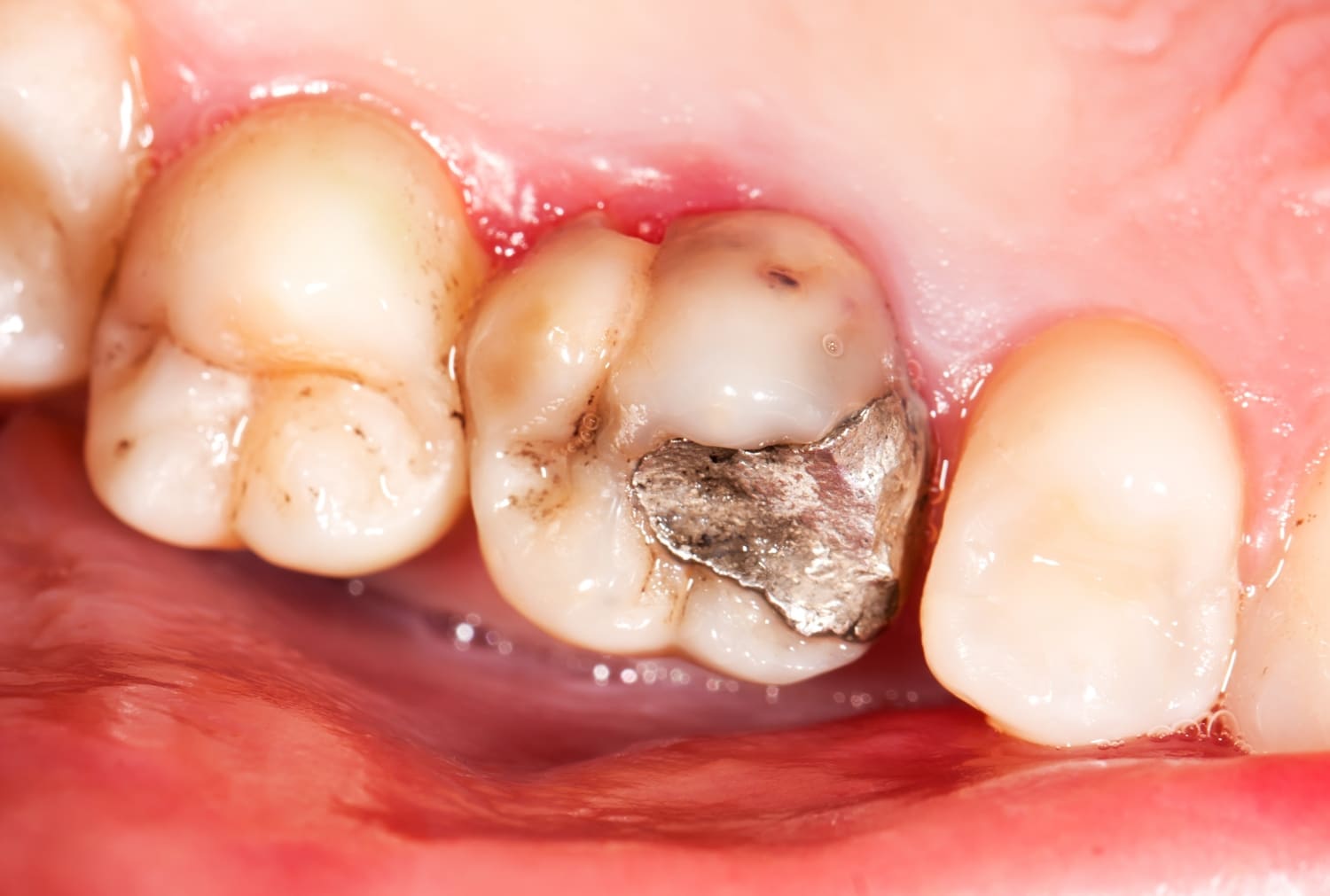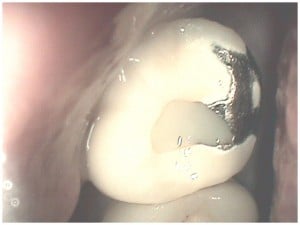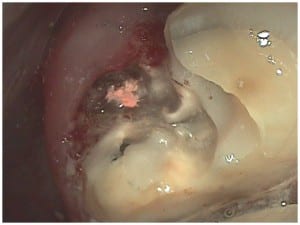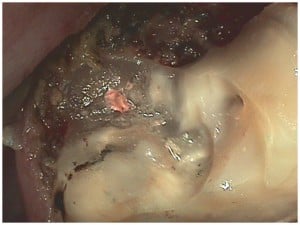Dental crowns are an effective way to repair a damaged tooth. But like all dental restorations, crowns aren’t meant to last forever. Eventually they will need to be replaced for a variety of reasons. In some instances, this is due to tooth decay that develops under the crown. When this occurs, you will need to work with a highly skilled and experienced dentist who can accurately diagnose the issue and customize your treatment plan accordingly.

During his career, Dr. Adler has helped numerous patients with decay under a dental crown. The correct course of action will depend on the nature and extent of the decay beneath the crown. In this blog post, we’re going to present a case study of Dee in order to illustrate how Dr. Adler approached this problem when the decay was so extensive that it required a tooth extraction.
Dee’s Story

Dr. Adler performed a comprehensive exam that included imagery of her teeth using an intraoral camera. These images showed that tooth #2, her upper right molar, had a porcelain-fused-to-metal (PFM) crown that was breaking down. X-rays showed that a root canal was performed on the tooth after the dental crown had been placed. Dr. Adler noticed that there was decay on the distal (back) side of the tooth, underneath the crown. He recommended removing the existing crown in order to clean out the decay, and then placing a new all-porcelain crown once the tooth had been restored to proper health.
Ongoing Pain from a Poor Prior Dental Result
However, once he removed the crown, Dr. Adler noticed that the decay was much more extensive than was indicated on the x-ray. Dee told him she had been experiencing pain on the tooth, and the PFM crown was initially placed on the tooth to address this pain. However, the pain persisted after the crown was placed, prompting her old dentist to perform a root canal.

Dr. Adler continued removing decay only to find that it extended deep into Dee’s tooth. There was some excess tissue around the back of the tooth that had partially grown into the cavity, making it difficult for Dr. Adler to evaluate the extent of the decay. Once he used a soft tissue laser to remove this excess tissue, he saw that the decay extended beneath the gum line. As a result, removing all of the decay wouldn’t leave enough remaining natural tooth structure to support a new dental crown. Therefore, the best course of action was to remove the decayed tooth.
Extraction of the Decayed Tooth
Extracting a tooth after a root canal is performed can be challenging because the tooth becomes more fragile, increasing the chances of it breaking apart during the extraction procedure. However, Dr. Adler was able to perform the extraction without any issues.

Based on this experience, Dee has asked Dr. Adler to examine all of her old crowns in order to make sure they are in good condition and don’t need to be replaced.
If you’re experiencing pain in a tooth with a dental crown, please contact Adler Advanced Dentistry using the form on this page or call today to schedule an appointment. We serve patients in the Boulder, Colorado area.

